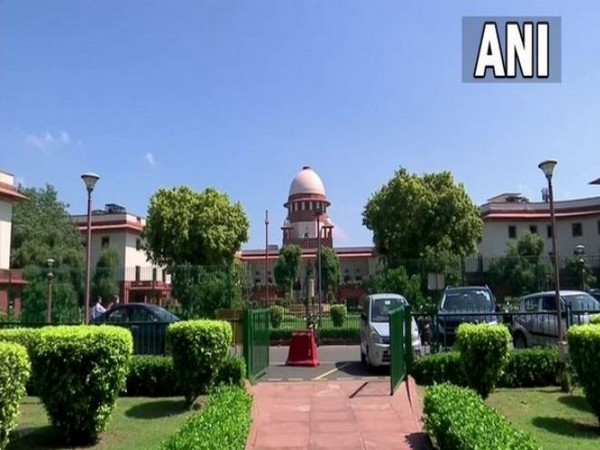Centre informs SC of allocation of Rs 4,315.15 cr to improve infrastructure in educational institutes
The Centre informed the Supreme Court that a total of 2,14,766 additional seats were approved to be created in the central educational institutions, and a total fund of Rs 4,315.15 crores was approved to be incurred to improve the infrastructure in the higher educational institutions.

- Country:
- India
The Centre informed the Supreme Court that a total of 2,14,766 additional seats were approved to be created in the central educational institutions, and a total fund of Rs 4,315.15 crores was approved to be incurred to improve the infrastructure in the higher educational institutions. The Centre's submission came in an affidavit filed before the Supreme Court while defending its decision relating to 103rd Amendment Act 2019, which the Parliament passed in January 2019.
The Union Government submitted that vide this Act, Articles 15(6) and 16(6) were inserted in the Constitution. Article 15(6) enables the State to provide reservations to the economically weaker Sections (EWS) in Central Government services while Article 16(6) enables the States to provide reservations to EWS in admission to the Central Government Educational institutions. "In pursuance of the provisions of this Act, the Department of Personnel and Training and Human Resources Department issued orders for implementation of the 10 per cent reservation to EWS candidates in Central Govt services and admission to Central Government Educational institutions in January 2019," the Centre said.
Centre submitted that as per the calculations done in this regard, in order to provide 10 per cent reservation for the economically weaker sections, without adversely impacting the proportionate reservations to the SC/ST and OBC categories and not reducing the seat availability for the general category in absolute numbers as compared to admissions made in 2018-19, the total increase in intake has to be increased by approximately 25 per cent (over and above the intake in 2018-19). Centre submitted that contemporaneously with the constitutional amendment, a decision was taken, in order to ensure that the seats available to the reserved category and the open category are not impacted in absolute numbers, the Department of Higher Education issued orders on 17.01.2019, to all the Central Educational Institutions to increase the intake in all branches of study to provide for 10 per cent reservations for Economically Weaker Sections, while protecting the proportionate reservations for Scheduled Castes/ Scheduled Tribes and Other Backward Classes and also not reducing the seat availability in the General category (in absolute numbers) in the year 2018-19.
The Supreme Court on Tuesday reserved its order in the matter related to the constitutional validity of reservations for the Economically Weaker Section (EWS) in higher education and public employment on the basis of financial conditions. The constitution bench comprising Chief Justice UU Lalit, Justice Dinesh Maheshwari, Justice S Ravindra Bhat, Justice Bela M Trivedi and Justice JB Pardiwala, reserved the order after all parties concluded their arguments.
The Constitution Bench dealt with issues relating to the Constitutional validity of reservations on the basis of economic conditions. The court began hearing the matter on September 13 and the hearing was on for seven days. The petitioners had submitted before the Supreme Court that providing reservation on the basis of economic criteria, excluding Scheduled Caste (SC), Scheduled Tribes (ST) and Other Backward Class (OBC), Non-Creamy Layer, breached the equality code.
Appearing for Centre, Attorney General of India KK Venugopal and Solicitor General Mehta has defended the union Government decision. The Centre had earlier submitted before the Supreme Court that EWS reservation does not violate the basic structure. Attorney General for India KK Venugopal submitted before the Supreme Court that economically weaker sections (EWS) reservation does not violate the basic structure doctrine.
He further argued that nothing had been altered for SC-ST, and OBC, but qualitatively the purpose of the EWS quota was not to touch the 50 per cent reservation. This 10 per cent is in a different compartment, he submitted. The AG was defending the constitution's 103rd amendment that provided for the EWS reservation before a constitutional bench of the supreme court.
Attorney General For India KK Venugopal has also submitted that the amendment was affirmative action for the society's weaker sections. EWS reservation does not erode rights given to SC, ST and OBC, he said. (ANI)
(This story has not been edited by Devdiscourse staff and is auto-generated from a syndicated feed.)










